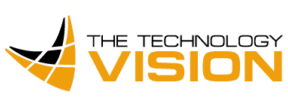Table of Contents:
- Introduction to SEO in the Enterprise Sphere
- Historical Perspectives on SEO for Corporates
- The Integration of AI and Machine Learning in SEO
- Building a Responsive SEO Infrastructure
- Content Strategy for Large-Scale SEO
- Overcoming Common SEO Challenges for Enterprises
- Future-Proofing Your SEO: Innovations on the Horizon
- Conclusion and Best Practices
Key Takeaways:
- It is understanding the evolution of SEO and its importance for large enterprises.
- Insights on integrating AI and machine learning into SEO strategies.
- Best practices for building a responsive SEO infrastructure and content strategy.
- The significance of leveraging data analytics to guide SEO decisions.
- I am preparing for future SEO challenges and innovations in technology.
Introduction to SEO in the Enterprise Sphere
Search engine optimization (SEO) is critical to online success for large corporations and global brands, moving beyond simple keyword targeting to building a comprehensive ecosystem that supports digital growth. An enterprise SEO agency focuses on deploying extensive strategies to enhance the online presence of such expansive businesses. However, this is about more than isn’t just implementing standard practices on a larger scale. Instead, it’s about recognizing and addressing the unique challenges of operating in multiple markets, languages, and a vast range of products and services within the digital space. As businesses evolve, crafting a scalable SEO strategy that aligns with an enterprise’s growth and market dynamics is essential for maintaining a competitive edge.
Today’s enterprise SEO isn’t just a battle for search engine rankings; it’s an ongoing process that intertwines user behavior, algorithm shifts, and technological advancements. A strong online presence relies heavily on crafting an adaptive and forward-looking SEO strategy that resonates with a brand’s diverse audience yet stays true to its core values. This involves a synergy of quality content, technical prowess, and data-driven insights, all orchestrated to not only improve search visibility but also provide a solid foundation for future growth.
Historical Perspectives on SEO for Corporates
It’s crucial to appreciate the profound transformation that SEO has undergone over the years to understand its current state within the enterprise context. The early days were characterized by practices such as keyword stuffing, but this has drastically changed as search engines like Google introduced algorithm updates aimed at enhancing search result quality. These updates, such as Panda and Penguin, have reshaped the SEO landscape by rewarding quality content and penalizing manipulative practices. Large enterprises have a lot at stake, so they must heed these changes and adapt accordingly. Latest Trends in SEO highlight that semantic search and user intent have become the new benchmarks, signaling enterprises to refine their strategies for continued relevance and competitiveness in the organic search ecosystem.
As search engines sophisticate their algorithms, corporations must stay ahead by adopting practices that adhere to these changes. This has moved SEO beyond mere technical optimization; it has become a holistic process that includes ensuring brand consistency, engaging storytelling, and creating a positive user experience across all digital properties.
The Integration of AI and Machine Learning in SEO
More recently, artificial intelligence (AI) and machine learning (ML) have become game-changers in the SEO industry, offering tools and insights that reshape keyword research, content creation, and user experience. These technologies allow for a more nuanced understanding of search behavior and content performance, enabling SEO professionals to make informed, data-driven decisions that align with enterprise priorities. From predictive modeling to natural language processing, AI and ML can help craft SEO strategies aligned with searcher behavior and preferences, thus maintaining a dynamic and relevant online presence.
In an increasingly data-rich but complex marketplace, adopting AI-driven SEO can help enterprises distill vast amounts of information into actionable insights. By automating tasks such as traffic analysis, trend spotting, and even predicting shifts in search patterns, AI and ML provide a cutting-edge approach to SEO. Large corporations leveraging this technology can establish a more sophisticated understanding of their digital landscape, leading to improved decision-making and sustained competitive advantage.
Building a Responsive SEO Infrastructure
Website infrastructure serves as the central nervous system of any effective SEO strategy. In the enterprise domain, this means developing a responsive, robust, and technically flawless web ecosystem that can serve users across different devices and regions. Factors like mobile-friendliness, page load speed, and secure connections are not just add-ons but core elements that significantly impact a website’s search rankings and user satisfaction levels.
For vast enterprises, technical SEO requires meticulous attention because it affects how search engines interact with the website. Aspects like site architecture, structured data, and error-free coding ensure that search engines can efficiently crawl and index web content. This is particularly important as businesses scale up their digital footprint, with more pages, products, and services needing to be organized so that users and search engines can navigate easily.
Content Strategy for Large-Scale SEO
The intersection of quality and quantity in content creation marks a delicate balance for enterprise SEO efforts. With diverse product lines and a vast array of services, companies must ensure that all their content is relevant and high-quality and caters to the needs of different customer segments. This requires a strategic approach to content curation and management, aiming to engage with a global audience while being sensitive to the nuances of localized content requirements.
In this vast content landscape, originality and relevance reign supreme. An enterprise must serve content that not only appeals to its broad customer base but also adheres to the principles of SEO, such as keyword optimization and link-building within the content. Doing so isn’t just about ticking the boxes of SEO best practices; it’s about creating content that informs, engages, and converts readers across different markets and demographics.
Overcoming Common SEO Challenges for Enterprises
Scaling SEO efforts to match the size of an enterprise often leads to unique challenges that can dilute the effectiveness of strategies. The answer to these challenges lies in integration and communication across various levels and departments of the organization. A unified approach to SEO ensures that all digital assets operate cohesively, leading to a strong, unified online presence that is both authoritative and efficient.
Addressing the multiple facets of enterprise SEO—from localization and content management to compliance and reporting—requires a comprehensive understanding of the organization’s overall business goals. It also demands a flexible SEO strategy that can adapt to changes in market conditions and search engine algorithms. By fostering collaboration and sharing insights and best practices across the enterprise, businesses can create an adaptable and resilient SEO framework that stands the test of time.
Future-Proofing Your SEO: Innovations on the Horizon
New technologies and platforms are continually emerging, presenting challenges and opportunities for enterprise SEO. Voice search, visual search, and the Internet of Things (IoT) are just a few areas expected to have significant implications for SEO soon. Staying abreast of these innovations is key to ensuring an enterprise’s SEO strategy remains relevant and effective.
One of the primary considerations of future-proofing SEO is the increasing importance of speaking users’ language—literally and contextually. This means optimizing content for screens, voice queries, and visual searches. As machine learning and AI evolve and new search modalities become more popular, enterprises must be ready to meet the demands of a diversified search landscape. This underscores the need for continuous learning, testing, and adaptation within the realm of SEO.
Conclusion and Best Practices
The relentless pace of technological advancements and algorithm updates means the SEO landscape is always shifting. To remain effective, enterprise SEO strategies must be dynamic, adaptive, and deeply rooted in a thorough understanding of the digital environment.
Embracing a data-centric approach, focusing on user experience and content relevance, and preparing for future technological shifts are among the best practices that underpin successful SEO at the enterprise level. And, as How AI is Transforming SEO shows, those enterprises that harness the power of artificial intelligence and machine learning will be better positioned to decode complex search patterns, predict user behavior, and refine their optimization practices accordingly. As a result, businesses leveraging these insights can expect to maintain a strong, visible, and engaging online presence that resonates with their audience, now and in the future.








